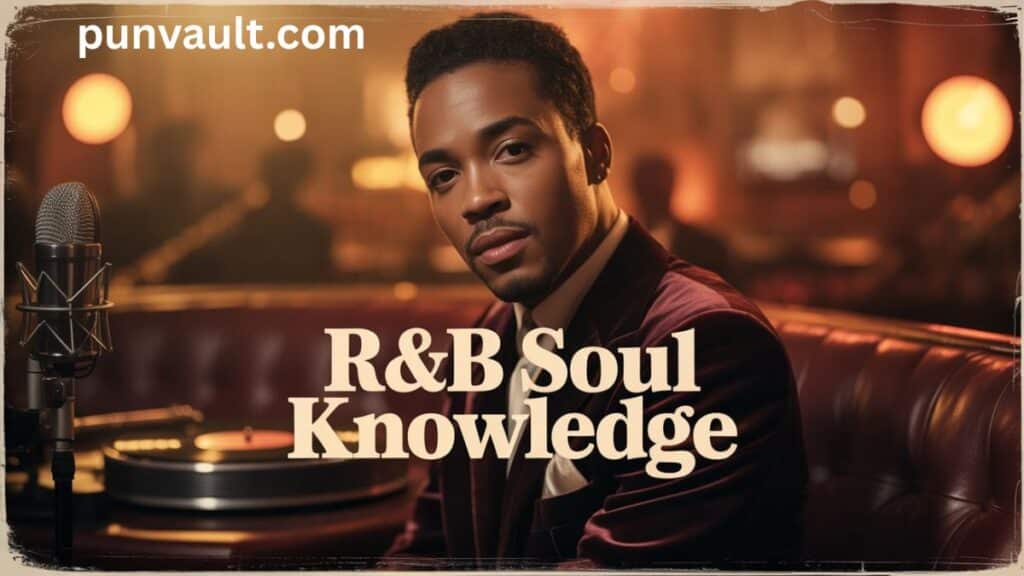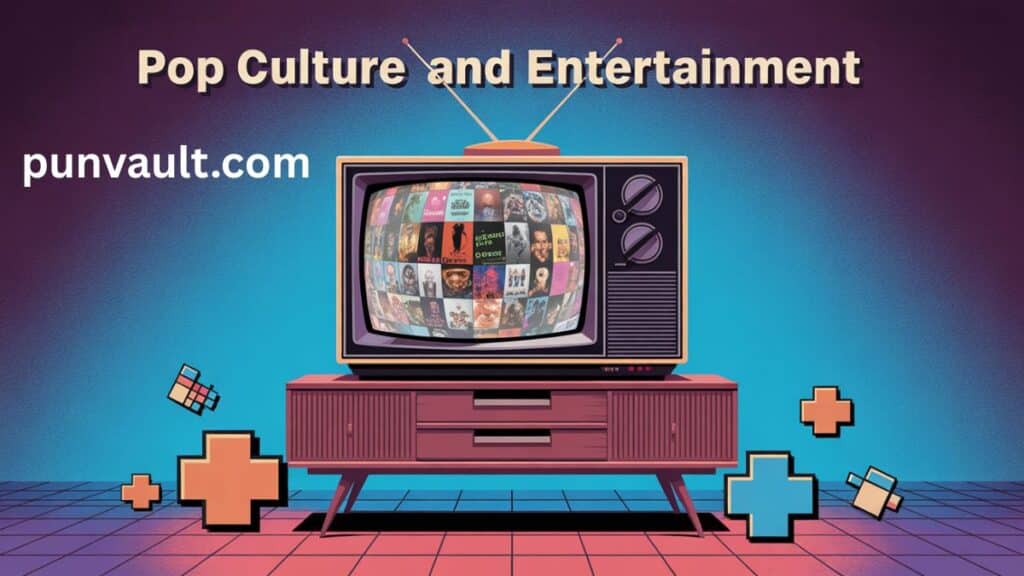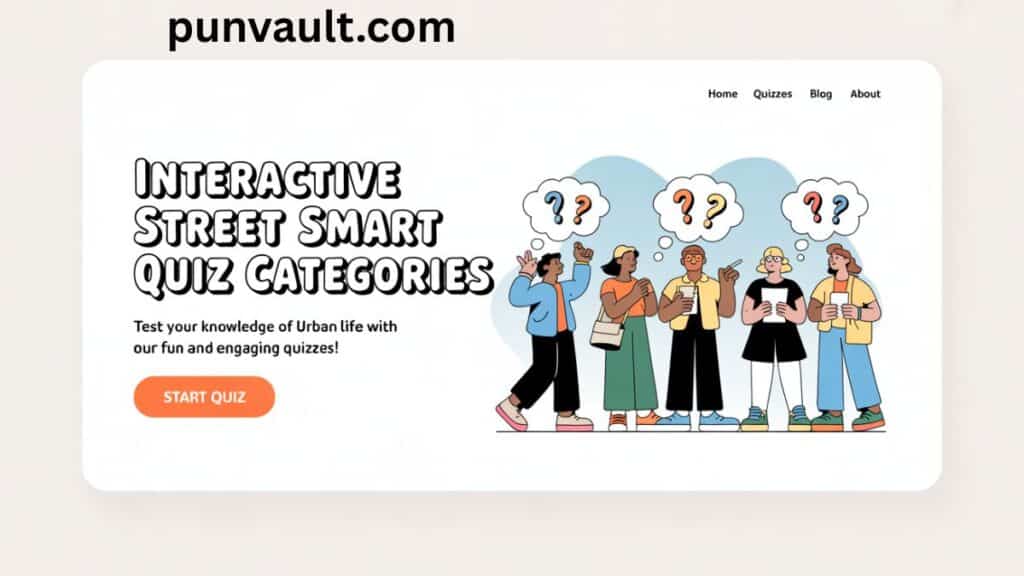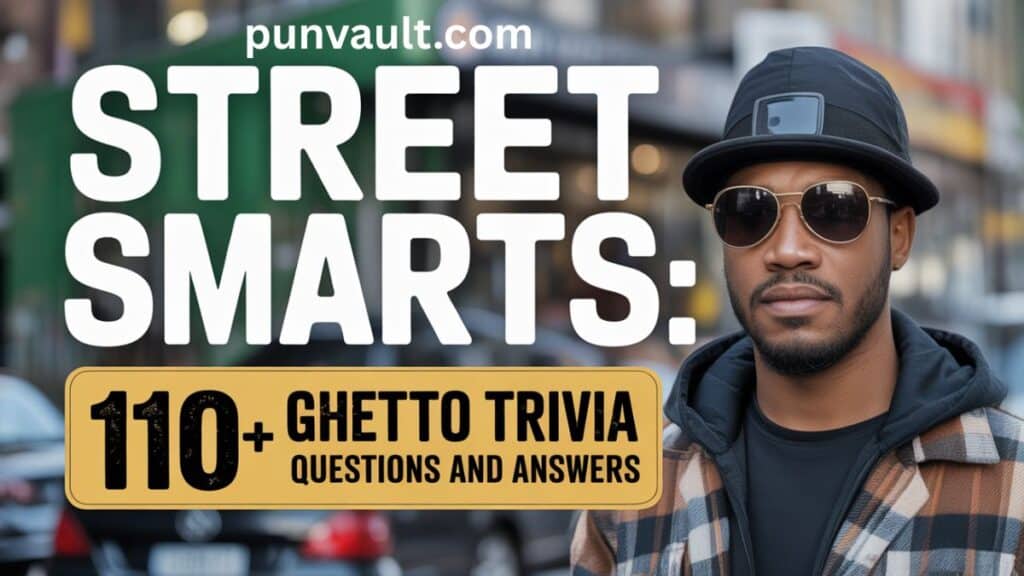Street Smarts: 110+ Ghetto Trivia Questions and Answers is a collection of fun, culturally rich questions that test and celebrate knowledge rooted in urban life, music, slang, fashion, and street culture. These trivia questions are more than just entertainment—they reflect the depth and diversity of life in the city, offering insight into the traditions, humor, and creativity of communities often overlooked.
Think you know hip-hop history, iconic street films, and the slang that shaped a generation? This trivia is packed with unforgettable moments and clever cultural references that will spark nostalgia, laughter, and learning—all while keeping it real and relatable.
Ghetto Trivia Questions and Answers bring together the soul of the streets and the legacy of urban culture into a game format. Whether you’re challenging your friends or just exploring your roots, this trivia experience highlights the resilience, pride, and influence of ghetto life on the global stage.
What Makes Great Street Smart Trivia?
Authenticity beats everything when it comes to urban culture trivia. You can’t just throw together random questions about rappers and call it street smarts. Real ghetto trivia requires deep understanding of community, struggle, and the legacy that built these cultural movements.
Great street-smart questions span generations. Your grandmother should recognize some soul classics while your younger cousin knows the latest trap references. This balance creates conversations that bridge age gaps and celebrate shared cultural identity.
The best trivia also respects regional differences. What plays in Houston might hit differently in Detroit. Queensbridge has its legends, just like Marcy Projects or Magnolia Projects. Authentic questions acknowledge these nuances without making anyone feel left out.
Depth matters more than surface-level name-dropping. Anyone can ask, “Who wrote ‘Juicy’?” Real street knowledge digs deeper: “What Biggie song samples Mtume’s ‘Juicy Fruit’ and tells his come-up story?” That’s the difference between casual fans and people with genuine street smarts.
Hip-Hop History and Legends
Hip-hop started in The Bronx during the 1970s, but its influence spread worldwide. Testing real hip-hop knowledge means going beyond the obvious hits to explore the pioneers, cultural significance, and moments that changed everything.
Golden Age Questions
Who hosted the first recorded rap battle? Kool Herc at 1520 Sedgwick Avenue. This block party in 1973 launched the entire hip-hop movement, proving that street culture could create art that transforms the world.
What does C.R.E.A.M. stand for? “Cash Rules Everything Around Me” – Wu-Tang Clan’s anthem about money, hustle, and surviving in the hood. This track perfectly captured the struggle and realism of urban lifestyle.
Which group popularized the term “Original Gangster”? Ice-T coined “OG” in hip-hop, though the concept existed in street culture long before rap music. Real street smarts means knowing the difference between authentic stories and manufactured personas.
Regional Rap Scenes
Different cities birthed unique hip-hop styles that reflected local culture and struggle:
| Region | Key Sound | Pioneers | Signature Style |
|---|---|---|---|
| The Bronx | Breakdancing beats | Kool Herc, Afrika Bambaataa | Party-focused, DJ-driven |
| Compton | G-funk | N.W.A, Dr. Dre | Realism, street narratives |
| Houston | Chopped and screwed | DJ Screw | Slowed-down, psychedelic |
| Atlanta | Trap music | OutKast, T.I. | Heavy bass, hustle themes |
| Memphis | Crunk | Three 6 Mafia | Dark, aggressive production |
Modern Hip-Hop Evolution
What does “Started from the bottom” represent in hip-hop culture? Drake’s anthem crystallized the come-up narrative that defines street smarts – starting with nothing and building something through hustle, wisdom, and determination.
Real street knowledge recognizes art that elevates community consciousness.
R&B Soul Knowledge

Soul and R&B music provided the soundtrack for urban lifestyle long before rap existed. These genres shaped cultural identity and continue influencing modern artists through samples, interpolations, and shared themes of love, struggle, and resilience.
Classic Soul Foundations
Who recorded “Fight the Power”? The Isley Brothers originally, though Public Enemy’s version became the hip-hop anthem. This evolution shows how street culture reinterprets classics for new generations while respecting original artistry.
What song contains the lyrics “No Scrubs”? TLC’s hit defined standards and self-respect in relationships. Real street smarts include knowing your worth and recognizing fake people trying to front.
Modern R&B Evolution
Today’s R&B blends traditional soul with hip-hop, trap, and modern production. Artists like The Weeknd, SZA, and Summer Walker continue traditions while creating fresh sounds for new audiences.
What does “getting the bag” mean in modern R&B? Success, money, and achieving goals through hard work. This phrase bridges hip-hop and R&B, showing how urban culture language evolves across genres.
Street Fashion and Style Evolution
Fashion in street culture never just follows trends – it creates them. From cornrows to kicks, urban style influences global fashion while maintaining deep cultural significance and community identity.
Iconic Fashion Moments
What are “waves”? The hairstyle was created using do-rags, brushes, and dedication.
Which shoe brand dominated early hip-hop culture? Adidas, especially after Run-DMC’s “My Adidas.” This partnership proved street culture could drive massive commercial success while maintaining authenticity.
Style Elements That Matter
| Element | Cultural Significance | Modern Evolution |
|---|---|---|
| Cornrows | African heritage, practical style | High fashion runways |
| Grills | Status, artistic expression | Mainstream jewelry |
| Chains | Success symbols, bling culture | Designer collaborations |
| Kicks | Personal identity, hustle rewards | Sneaker investment market |
What’s “drip”? Your complete style package – clothes, confidence, and swagger. Having drip means your entire look works together perfectly, showing street smarts through visual presentation.
Urban Slang and Language Origins
Street slang evolves constantly, but understanding origins reveals deeper cultural knowledge. Real street smarts means knowing not just what words mean, but where they came from and why they matter.
Foundation Terms
What does “dope” originally mean? Before becoming slang for “excellent,” dope referred to drugs. Hip-hop reclaimed and transformed the word, showing how street culture creates positive meaning from negative circumstances.
Where does “bling bling” come from? Cash Money Records, specifically B.G.’s 1999 song. This term captured the flashy jewelry and success symbols that became hip-hop signatures, representing hustle paying off.
Regional Variations
Different cities developed unique slang that reflects local culture:
- New York: “Bodega” (corner store), “deadass” (seriously)
- Chicago: “Juke” (dance), “mob” (group of friends)
- Houston: “Slab” (car), “chopped up” (messed up)
- Atlanta: “Shawty” (girl), “crunk” (energetic)
- Los Angeles: “Hella” (very), “hyphy” (wild energy)
Modern Social Media Evolution
What does “periodt” mean? End of discussion, no debate needed. Social media accelerated slang evolution, with terms spreading nationally in weeks instead of years.
When someone’s “pressed,” what’s happening? They’re angry, bothered, or upset about something. This term shows how street language efficiently communicates complex emotional states.
Pop Culture and Entertainment

Movies and TV shows shaped street culture as much as music did. From Friday to The Wire, entertainment provided shared experiences that defined community identity and cultural understanding.
Essential Urban Cinema
What movie popularized “Bye, Felicia”? Friday (1995), though the line came from Angela Means’ character Felisha. This phrase became universal slang for dismissing annoying people.
Which film explored Compton gang life realistically? Boyz n the Hood (1991) showed hood realities without glorifying violence. Director John Singleton brought authentic street perspectives to mainstream cinema.
Television Impact
What show featured “Sheneneh”? Martin, where Martin Lawrence’s drag character became legendary. Sheneneh represented hood personality taken to comedic extremes while celebrating community characters.
Which series depicted Baltimore street life accurately? The Wire showed how drugs, poverty, and systemic issues impact urban communities. Real street smarts includes understanding these complex social realities.
Comedy and Cultural Commentary
| Show/Movie | Cultural Impact | Lasting Legacy |
|---|---|---|
| Good Times | Working-class struggle | “Dy-no-mite!” catchphrase |
| The Fresh Prince | Class differences | Style and swagger influence |
| Living Single | Independent women | Friendship and career goals |
| The Boondocks | Political commentary | Controversial cultural criticism |
Sports and Street Legends
Basketball dominates street sports culture, but street smarts includes knowing legendary players, courts, and moments that transcended games to become cultural phenomena.
Streetball Legends
Who’s considered the greatest streetball player ever? Earl “The Goat” Manigault could reportedly grab quarters off backboard tops. His legend proves street talent doesn’t always need NBA validation.
What court launched the most NBA careers? Rucker Park in Harlem saw everyone from Kareem Abdul-Jabbar to Kevin Durant. This legendary court represents street basketball’s highest level.
Cultural Crossovers
Which athlete said, “We talkin’ about practice”? Allen Iverson’s press conference became instant meme culture. AI‘s authenticity and street credibility made him a cultural icon beyond basketball.
What does “And 1” represent in street culture? The streetball brand that celebrated playground basketball’s creative, flashy style. And 1 mixtape showed street players could entertain like professional athletes.
Food Culture and Traditions
Soul food and street eats represent more than just meals – they’re cultural connections, community gathering points, and expressions of creativity born from struggle and resilience.
Soul Food Essentials
What makes cornbread authentic? Real cornbread uses cornmeal, not just flour with corn flavoring. Southern and urban communities developed countless variations, each family protecting their special recipe.
Cooking greens properly requires patience, seasoning knowledge, and cultural understanding.
Corner Store Culture
What’s a “bodega” vs. corner store? Bodegas specifically refer to Latino-owned convenience stores, usually in New York. Corner stores are the general term for neighborhood markets that serve as community hubs.
Which snack defined hood childhoods? Answers vary regionally: Now and Laters, Laffy Taffy, Blow Pops, or quarter waters. These cheap treats became shared memories across urban communities.
Modern Food Trends
| Food | Cultural Origin | Modern Status |
|---|---|---|
| Mac and cheese | Soul food staple | Gourmet restaurant dish |
| Fried chicken | Southern tradition | Global fast food |
| Hot sauce | Flavor enhancement | Artisanal market |
| Kool-Aid | Affordable drink | Nostalgic brand |
Interactive Street Smart Quiz Categories

Beginner Level: Gateway Questions
These questions welcome newcomers while testing basic cultural knowledge:
- What does “keeping it 100” mean? Being completely honest and authentic
- Who sang “I Will Always Love You”? Whitney Houston (though Dolly Parton wrote it)
- What’s a “whip”? Your car or vehicle
- Which movie featured “You got knocked the f* out!”?** Friday
- What does “my bad” mean? My mistake. I apologize
Intermediate Level: Culture Enthusiasts
For people with solid street knowledge:
- What’s “chopped and screwed”? Houston DJ technique slows songs down
- Who created the “Harlem Shake”? The dance originated in Harlem in the 1980s
- What does “Posted up” mean? Hanging out in one spot, usually your neighborhood
- Which group said “Nuthin’ but a ‘G’ Thang”? Dr. Dre featuring Snoop Dogg
- What’s a “day-one”? Someone loyal from the beginning
Expert Level: Deep Street Knowledge
Only true culture experts know these:
- What’s the “Pruitt-Igoe Myth”? Documentary about St. Louis housing project demolition
- Who started “The Marathon Continues”? Nipsey Hussle’s motivational philosophy
- What does “lined up” mean? Having a fresh haircut with perfect edge-up
- Which projects produced Jay-Z? Marcy Projects in Brooklyn
- What’s “getting licked”? Being robbed or hustled
Hosting Your Own Street Smart Trivia Night
Planning successful street trivia requires understanding your audience, creating an inclusive atmosphere, and balancing competition with celebration of shared culture.
Setup Strategies
Mix difficulty levels throughout each round. Don’t group all easy questions – alternate between accessible and challenging to maintain engagement for everyone.
Create team categories that encourage diverse knowledge:
- “The OGs” (older participants with classic knowledge)
- “New School” (younger players with modern references)
- “Mixed Generations” (teams combining different age groups)
Prize Ideas That Matter
Authentic prizes enhance the experience:
- Vinyl records from legendary artists
- Gift cards to local soul food restaurants
- Vintage hip-hop merchandise
- Bluetooth speakers for music lovers
- Custom t-shirts with inside jokes from the night
Creating Inclusive Atmosphere
Street trivia should celebrate culture, not exclude people. Welcome newcomers by explaining context for obscure references. Encourage storytelling – when someone answers correctly, let them share memories connected to the question.
Cultural Context and Respect
Understanding street culture requires respecting its origins and significance. These aren’t just entertainment questions – they represent real communities, struggles, and achievements that deserve acknowledgment.
Appreciation vs. Appropriation
True street smarts means knowing the difference between celebrating culture and exploiting it. Learn history, support artists, and understand context before adopting elements of cultures different from your own.
Respect comes from education. Read about civil rights, housing discrimination, and systemic issues that shaped urban communities. Street culture emerged from resilience in the face of adversity.
Why These Questions Matter
Street trivia preserves oral history and cultural knowledge that formal education often ignores. Every correct answer represents someone’s lived experience, artistic achievement, or community contribution.
Building bridges through shared knowledge creates understanding across different backgrounds. When people discover common references or learn new perspectives, stereotypes break down and genuine connections form.
Answer Key and Cultural Context
Hip-Hop Foundation Answers
Q: Who’s considered the father of hip-hop? A: Kool Herc – August 11, 1973, at 1520 Sedgwick Avenue in The Bronx. DJ Kool Herc’s legendary block party introduced techniques that launched hip-hop culture worldwide.
Q: What does “Bling Bling” originally reference? A: Cash Money Records jewelry and success symbols. B.G. popularized the term in 1999, capturing hip-hop’s celebration of hustle paying off through flashy displays of wealth.
Cultural Significance Explanations
Each answer connects to broader cultural movements:
- “C. R.E.A.M” represents economic survival strategies in underresourced communities
- “Fight the Power” bridges civil rights activism with hip-hop social commentary
- “Sheneneh” celebrates larger-than-life neighborhood personalities through comedy
Regional Knowledge Sources
Different cities contributed unique elements:
| Location | Contribution | Key Figures | Lasting Impact |
|---|---|---|---|
| The Bronx | Hip-hop origins | Kool Herc, Afrika Bambaataa | Global culture foundation |
| Compton | Gangsta rap | Global Culture Foundation | Authentic street narratives |
| Houston | Chopped and screwed | DJ Screw | Regional sound innovation |
| Atlanta | Trap music | OutKast, T.I. | Southern hip-hop dominance |
Regional Variations and Local Legends

Every city developed unique street culture elements that reflect local history, demographics, and social conditions. Authentic street knowledge acknowledges these regional differences while celebrating shared experiences.
City-Specific Questions
Chicago: What’s a “juke“? The dance style originating from Chicago house parties, characterized by fast, aggressive movements matching the frantic beat patterns.
Detroit: Which Motown artist influenced modern hip-hop most? Marvin Gaye’s social commentary in “What’s Going On” paved the way for conscious rap addressing community issues.
New Orleans: What does “making groceries” mean? Local slang for grocery shopping, showing how regional language develops unique expressions for common activities.
Adapting Questions for Your Area
Research local hip-hop scenes, legendary venues, and hometown heroes. Every city has artists, DJs, or cultural figures who deserve recognition in regional trivia questions.
Connect national trends to local experiences. How did the crack epidemic affect your city? Which local artists addressed community issues? What venues hosted important cultural events?
Building Cultural Understanding Through Trivia
Street smart trivia succeeds when it educates while entertaining. The best questions spark conversations about history, challenge assumptions, and create opportunities for cross-cultural learning.
Real street knowledge encompasses struggle and triumph, creativity and survival, individual achievement and community support. When you master these 110+ questions, you’re not just memorizing facts – you’re connecting with cultural movements that shaped modern America.
Test your friends, challenge your family, and discover how deep your street smarts run. Every correct answer represents another piece of cultural literacy that connects you to communities, artists, and movements that transformed entertainment, fashion, language, and social consciousness.
Share your results, debate the answers, and most importantly – keep learning. Street culture evolves constantly, which means your knowledge should grow too. Stay curious, stay respectful, and keep your street smarts sharp.
Conclusion:
Ghetto Trivia Questions and Answers are a fun way to learn about urban life, music, slang, and street culture. They playfully teach real stories and facts. These questions help people connect with the roots of hip-hop and ghetto history.
By playing Ghetto Trivia Questions and Answers, you can enjoy, laugh, and even learn something new. It’s perfect for parties, game nights, or just testing your street knowledge. This trivia brings people together while honoring the culture that shaped so much of today’s world.
FAQs:
What are “Ghetto Trivia Questions and Answers”?
Street Smarts: 110+ Ghetto Trivia Questions and Answers
Fun quiz-style questions focused on urban culture, hip-hop, slang, films, fashion, and street life.
Who is the trivia meant for?
Anyone curious about urban culture—perfect for parties, family nights, or casual learning with friends.
How many questions does it include?
Over 110 questions spanning various topics such as rap history, street slang, iconic movies, and city culture.
Is it appropriate for all ages?
Mostly yes—questions are lighthearted, though some slang may suit teens and adults better.
Where can I play these trivia questions?
Street Smarts: 110+ Ghetto Trivia Questions and Answers
You can use them in casual games at home, virtual quizzes, social media polls, or gatherings.

Abdul Matloob is a wordsmith with a sharp eye for grammar and a playful love for puns. Blending linguistic precision with clever humor, he crafts content that delights language lovers and grammar geeks alike. Whether he’s breaking down the quirks of English grammar or delivering punchy puns that make readers groan and grin, Abdul Matloob turns language into both an art and a game.







